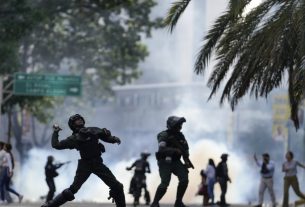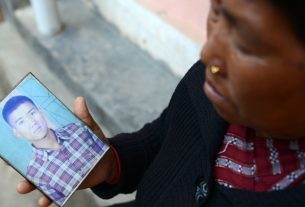Thirteen years after the brutal murder of Bangladeshi journalist couple Sagar Sarwar and Meherun Runi, justice remains elusive. Despite repeated promises from political leaders and law enforcement authorities, the investigation into the double homicide has been delayed 118 times, deepening public mistrust and fueling allegations of political interference and institutional failure.
A Tragedy That Shook the Nation
On the night of February 11, 2012, Sagar Sarwar, news editor of Maasranga TV, and his wife Meherun Runi, senior reporter at ATN Bangla, were found stabbed to death in their rented apartment in West Rajabazar, Dhaka. Their five-year-old son, Mahir Sarwar Megh, was in the apartment at the time.
The following day, Runi’s brother, Nausher Alam Roman, filed a case with Sher-e-Bangla Nagar Police Station, initiating an investigation that has since changed hands multiple times—without resolution.
A Trail of Delays and Transfers
Initially led by Sher-e-Bangla Nagar Police, the case was transferred to the Detective Branch (DB) just days later, and then to the Rapid Action Battalion (RAB) in April 2012. After more than a decade of stalled progress, the High Court ordered the Police Bureau of Investigation (PBI) to take over in November 2024. The latest effort included the formation of a four-member task force, with PBI Additional Superintendent of Police Azizul Haque as the current investigating officer.
Despite this renewed focus, no investigation report has been submitted, and the court’s deadline for the latest report has passed without result. The 118th scheduled submission date—May 21, 2025—came and went with no update, further frustrating the victims’ family and Bangladesh’s journalist community.
Suspects and Interrogations
Following the murders, eight suspects were arrested: Kamrul Islam (Arun), Abu Sayeed, Rafiqul Islam, Bokul Mia, Masum Mintu, Palash Rudra Pal, Anamul Haque (Humayun Kabir), and Tanveer Rahman Khan. While Palash and Tanveer are currently out on bail, the others remain in detention.
The PBI has reportedly interrogated over 50 individuals, including former high-ranking security officials. Court-approved applications allowed the interrogation of Major General (Retd.) Ziaul Ahsan, former Additional DIG Mashiur Rahman, and suspect Humayun Kabir. However, no substantial findings have been publicly disclosed.
Families, Colleagues, and a Nation Await Closure
The victims’ family continues to bear the emotional weight of a case that has become emblematic of justice delayed and denied. Sagar’s mother, Saleha Monir, who is now in poor health, expressed renewed hope after the change in government earlier this year:
“Now that the previous government is gone, I hope the killers will finally be brought to justice.”
Their son, Megh, now 18, has grown up in the shadow of this national tragedy, and like his grandparents and uncle, he is still waiting for accountability.
Journalist associations across Bangladesh continue to mark February 11 as a day of mourning and protest. This year, the Dhaka Reporters Unity (DRU) organized a commemorative program, submitting a memorandum to the Home Affairs Advisor demanding swift action.
DRU President Abu Saleh Akon was vocal at the event:
“For 13 years, there has been no justice. Influential people involved in this murder have manipulated the investigation. If progress is not made, we will take to the streets.”
Journalists have also called for February 11 to be officially recognized as Journalist Protection Day—a move symbolizing both remembrance and resistance.
A Legacy of Political Inertia
The journalist community and civil society allege that political protectionism and institutional complicity under the former Awami League government, which held power for four consecutive terms, hindered justice. Despite public assurances, no significant action was taken during its tenure.
The transfer of the case to the PBI under the interim government, following student-led protests that forced the Awami League from power, raised hopes for renewed accountability. However, the pace of progress has again slowed.
Legal Experts Call for Accountability
Legal professionals have criticized the prolonged delay. Dhaka Metropolitan Public Prosecutor Abdullah Abu acknowledged the urgency:
“This is a high-profile case. Once we receive the report, we must expedite the trial.”
Lawyer Ehsanul Haque Samaji added:
“Though the law allows for extensions, this case has crossed all reasonable boundaries. The court must monitor progress more closely and hold investigators accountable.”
Conclusion: A Test of Will and Justice
The unresolved murder of Sagar and Runi is not just a personal tragedy—it is a profound indictment of systemic flaws in Bangladesh’s justice and political systems. It exposes how partisan influence, institutional weakness, and lack of transparency can obstruct justice, even in the most high-profile of cases.
For journalists, activists, and ordinary citizens, the case has become a symbol of resistance and a litmus test for the country’s commitment to rule of law. Until justice is served, the credibility of Bangladesh’s legal and political institutions will remain in question.



